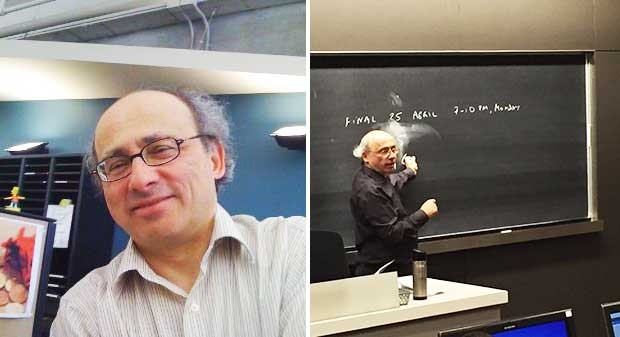$10,000 to explore big questions about big data
 Krzysztof Dzieciolowski's project explores how algorithms of big data have the potential to radically change modern economics on the global scale.
Krzysztof Dzieciolowski's project explores how algorithms of big data have the potential to radically change modern economics on the global scale.
How can we improve algorithms to analyze big data? How can we better predict consumers’ habits and actions?
These are just some of the questions at the heart of Krzysztof Dzieciolowski's research project that won the $10,000 Special Project Award from the Concordia University Part-time Faculty Association (CUPFA).
A lecturer in the John Molson School of Business’ (JMSB) Department of Supply Chain and Business Technology Management for 22 years, Dzieciolowski also has more than two decades of industry experience as a group manager and a director in the field of customer analytics and modeling at both Rogers Communications and Bell Canada.
He will be giving a talk, Big Data and Data Mining, at 2 p.m. on Tuesday, March 15, in Room MB-6.240 of the John Molson Building. Registration is required.
New methodologies in data matching
Dzieciolowski's CUPFA project, Bridging Academic and Industry Expertise for Big Data Probabilistic Data Matching, explores how algorithms of big data have the potential to radically change modern economics on the global scale.
“I also want to investigate the consequences of mismatches and the biases associated with making an error,” says the part-time lecturer, who teaches “BSTA 478 - Data Mining Techniques,” a course that tripled in size this year.
“That's something that hasn't been investigated and it could have big consequences for how companies making decisions — thinking there is a data match, when in fact there isn't, or vice-versa,” he says. “The consequences of wrong decisions — so-called false positives and false negatives — also have a trickle-down effect on the central issue for data mining, which is the accuracy and robustness of predictive models.”
CUPFA calling!
This year, CUPFA put out an open call for projects from part-time faculty members teaching at JMSB.
“We wanted to promote research activities at JMSB and generate energy in that area,” says Lorraine Oades, CUPFA’s vice-president of professional development.
“Many of the part-time faculty members who teach at JMSB also work in industry, so they have less time to do these kinds of things,” she says.
“The Special Project Award is a way of creating a kind of stimulus to generate ideas and energy. Also, we're always trying to make sure our members are aware of the professional development funding we have for part-time faculty. This is a way of reminding members that they can apply to do smaller research projects and go to conferences and do workshops.”
Oades says Dzieciolowski’s project won because it builds on his pre-existing expertise in an exciting and developing field.
“He’s well-known in an area that’s a unique niche at Concordia — big data mining — and it’s an area that will impact all of our lives in a positive, and potentially negative, way,” says Oades. “Plus, he’ll be working with an industry partner, so his research students will be able to apply tools they learned in the classroom in a real-world setting.”
Krzysztof Dzieciolowski’s talk, Big Data and Data Mining, takes place on Tuesday, March 15, between 2 and 3:30 p.m. in Room MB-6.240 of the John Molson Building (1450 Guy St.), on the Sir George Williams Campus. Register today!
Learn more about the John Molson School of Business.

